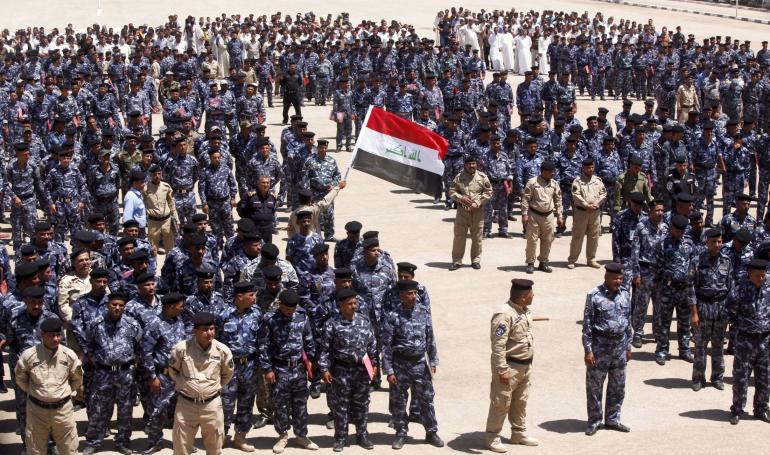Iraq’s federal and Kurdish forces Saturday prepared their bid to reclaim lost ground as US jets pounded rebel positions to pave the way and also dropped aid to stranded civilians.
President Barack Obama’s decision to send warplanes back to Iraq, three years after pulling the last US troops out of the country, marked a potential turning point in the two-month-old conflict.
After a first day of US air raids on Islamic State (IS) fighters who had moved within striking distance of Kurdistan, a top official in the autonomous region said the time had come for a fightback.
“Following the US strikes, the peshmerga will first regroup, second redeploy in areas they retreated from and third help the displaced return to their homes,” Fuad Hussein told reporters Friday in the Kurdish capital Arbil.
Iraqi Foreign Minister Hoshyar Zebari, a Kurd who has boycotted cabinet meetings for weeks as relations soured with Baghdad, said that failing to arm the Kurdish peshmerga forces had been a costly mistake.
He said the American air strikes had stopped the rot on the ground and allowed the federal and Kurdish authorities to unite behind the common cause of defeating the IS rebels.
“The Iraqi army and the peshmerga are fighting side-by-side in the same trenches now,” he said.
Iraq’s military chief of staff, Babaker Zebari, told AFP on Friday that US advisers, peshmerga and federal top brass were “selecting targets” together.
The first US bombings struck IS positions and at least one convoy of vehicles carrying rebels west of Arbil.
A White House spokesman said Friday the strikes would be “very limited in scope”, but Babaker Zebari said he thought US air support would extend to other areas.
He said the intervention would allow joint action to reclaim large tracts of land lost to the Sunni rebels since they launched their devastating offensive on June 9, exactly two months ago.
The Pentagon also said late Friday that cargo planes escorted by combat jets made a second air drop of food and water to “thousands of Iraqi citizens” threatened by the rebels on Mount Sinjar.
Obama justified the strikes on Thursday by the threat to US personnel in Kurdistan and the need to avert a genocide against Sinjar’s Yazidi community.
Thousands of Yazidis, a Kurdish-speaking minority following an ancient faith rooted in Zoroastrianism, fled their homes a week ago when rebels attacked the town of Sinjar.
Many of them have since been stranded in the nearby mountain range, with no food and water in searing temperatures.
Several thousand have made their own way to Turkey or Syria after walking for days, while others have been evacuated by Kurdish fighters from both those countries.
But aid groups and rescued Yazidis say a larger number remain trapped and in dire need of assistance.
“They suffer from dehydration, sunstroke and some of them are seriously traumatised,” International Rescue Committee acting country director Suzanna Tkalec told AFP of some 4,000 survivors to whom her organisation is providing emergency care in Syria.
She said the latest string of IS attacks in northern Iraq had triggered an influx of 200,000 displaced people into the western Dohuk province of Kurdistan.
The scale of the displacement over the past two months has put huge pressure on the autonomous region of around five million people.
On Thursday alone, up to 100,000 Iraqi Christians fled their homes in the Nineveh plains, west of the main rebel hub of Mosul.
Chaldean Catholic leaders said the largest Christian town in the country, Qaraqosh, had been emptied of its inhabitants in a matter of hours.
While it remains how long and how much deeper into Iraq US warplanes will remain active, analysts have said the intervention had the potential to turn the tide on rebel expansion.
“The air strikes could certainly soften up some of the IS positions and make it easier for counter-offensives on the ground by the Kurdish peshmerga,” John Drake of the AKE Group security company said.
He also said surgical strikes could take out some command centres and disrupt the Islamic State’s chain of command.
The latest IS gains saw rebels take over Mosul dam, the country’s largest, vast swathes of land both east and west of their Iraq headquarters and further abolish the border with the Syrian half of the “caliphate” it proclaimed in late June. SAPA






 WhatsApp us
WhatsApp us 

